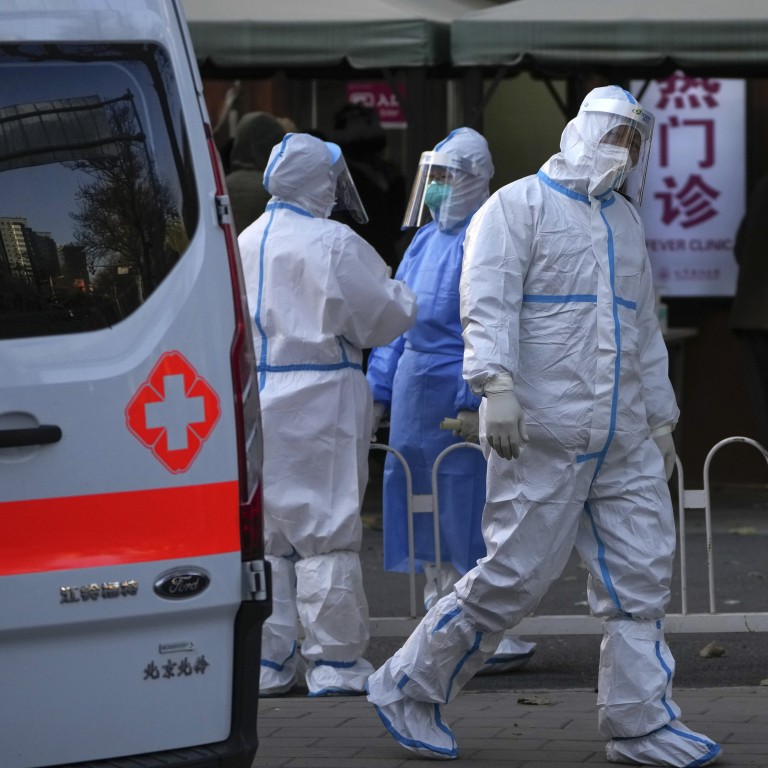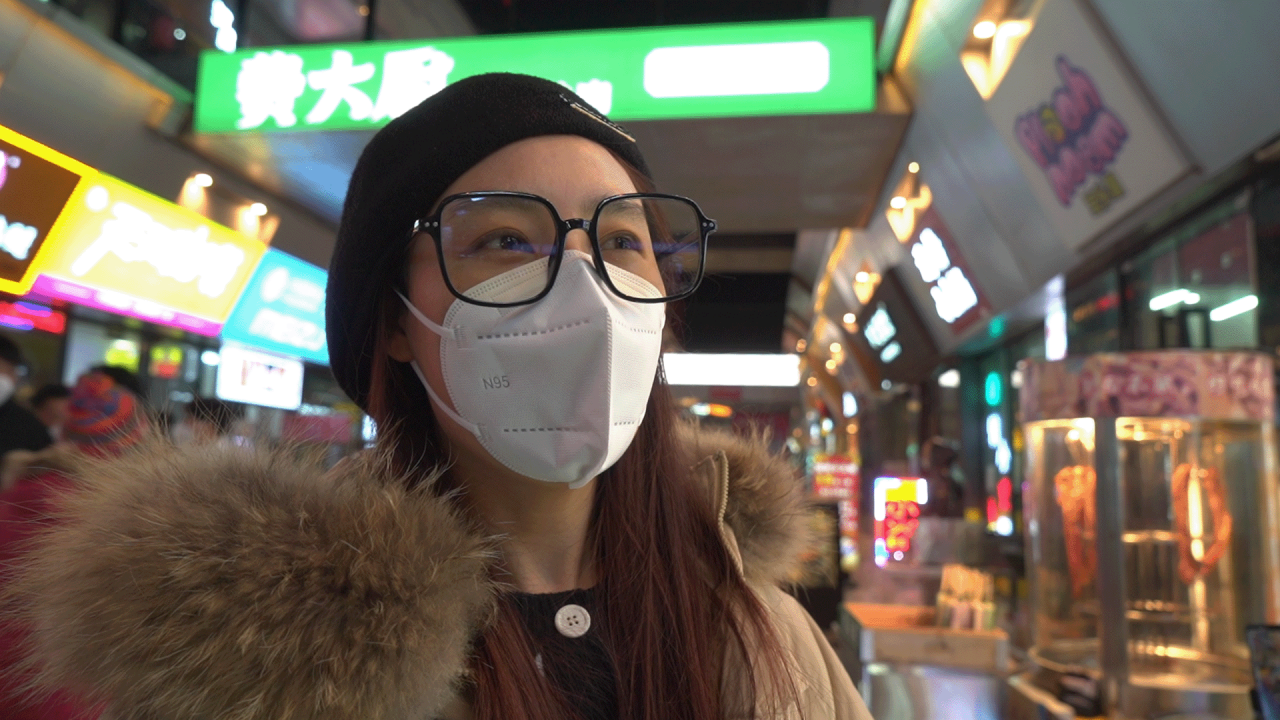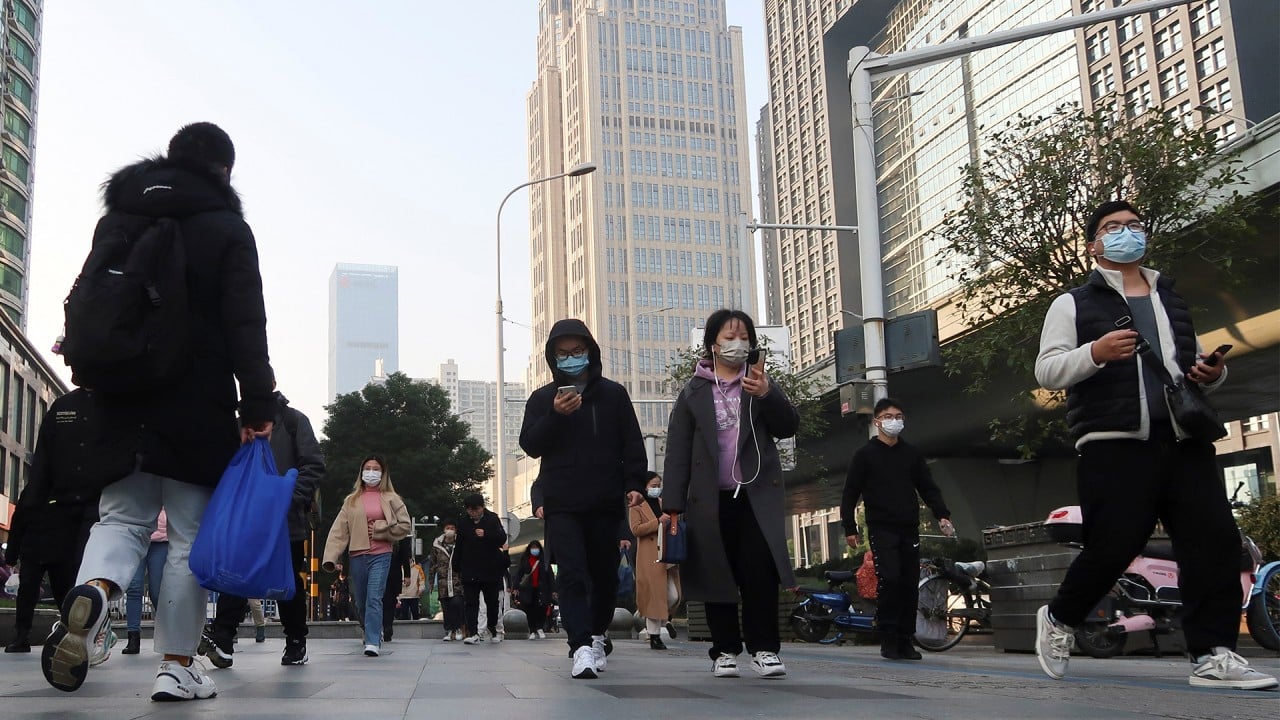
Beijing hospitals battle staff shortage and patient influx after China’s sudden zero-Covid switch
- Infected doctors and other staff are pushing on at work so hospitals can continue to treat the public
- Many Chinese remain fearful of the virus, prompting long queues at hospital fever clinics and a spike in the number of calls for an ambulance
The city reported only 1,027 infections on Tuesday morning but the true scale of cases is believed to be much greater, with residents no longer required to have PCR tests or report their antigen test results.
There are big concerns whether China can safely make the shift from its former strict zero-Covid policy without rampant infections in the community crushing the health system.
Since more relaxed rules were announced last week and the capital stopped trying to control growing outbreaks, hospitals in Beijing have been trudging through difficult waters.
Hospitals have not yet been stretched to breaking point but staff shortages are common as healthcare workers are struck down by the virus.
Some facilities have cancelled non-emergency surgery just to keep their services running.
“The rapid development of the epidemic has led to greater pressure on health services in the short term,” Li Ang, deputy director of Beijing’s health commission said on Monday.
Vice-premier Sun Chunlan, who has been in charge of Covi-19 control for the past three years, inspected several hospitals and pharmacies in Beijing on Tuesday and said the focus of work should be changed from controlling infection to treatment.
“The most urgent matter for the capital [is] to ensure the residents have access to drugs and medical care,” Sun said, according to state news agency Xinhua.
The Xinhua report said the capital currently has 50 severe cases, most of them with underlying conditions. The epidemic is fast growing, but most infections are asymptomatic and mild.
Sun called for improved protocols and expanded medical resources, with more doctors assigned to fever clinics to ease pressure on high level hospitals.
“Beijing municipal government is working hard to solve the problem of accessing healthcare and drugs. We have the system advantage of allocating the national resources and will survive the peak of the wave,” she said, according to the Xinhua report.
A notice posted in the pharmacy window at Haidian Hospital in western Beijing said “all pharmacists on duty are sick – please bear with us”, a situation repeated in other departments, according to an administrator at the hospital.
“A lot of doctors are sick with Covid-19 as well but have to report for duty because otherwise the hospital cannot open, which is not an option,” the administrator said, declining to be identified because she was not authorised to speak to the media. “We must keep the hospital open and running.”
Another administrator at a second-tier hospital in Dongcheng district said so many doctors were ill in the paediatric department that she had to limit each shift to one doctor so at least there was someone qualified to prescribe drugs.
Lack of road map for China’s coronavirus U-turn sparks confusion
PCR testing for doctors has quickly evolved from daily testing to no testing at all. Some doctors had to work even though they were sick with Covid-19, the administrator said.
“We don’t do PCR tests any more so a doctor might be positive and still report to duty. If you come across a doctor who talks to you with a hoarse voice, nine out of 10 times the doctor just breaks the fever and comes to work because we need people to keep the hospital running,” she said.
Zhang Wenhong, an infectious diseases specialist with Shanghai’s Huashan Hospital, warned that a large number of healthcare workers would be infected in the first epidemic wave post zero-Covid, and the strain on medical resources and shortages “would be inevitable”.
“We should do everything we can to delay infection in the older age groups and minimise the number of elderly people infected at the peak of the first wave of the epidemic,” Zhang wrote on his team’s WeChat account on Monday.
A doctor of internal medicine in another hospital in Dongcheng district said the hospital had stopped checking patients’ PCR test results and some patients seeking prescriptions had typical Covid-19 symptoms. But she was not particularly worried because getting infected was “bound to happen”.
“I wear the mask well but I think it’s just a matter of time before I get infected at work. I am keeping a cool head about it,” she said.
Noted scientist Rao Yi calls for revamp of China’s public health system
State media and health officials have urged residents not to panic and – unless they are seriously ill – to manage their symptoms at home instead of requesting an ambulance. The National Health Commission has released a guideline on home recovery.
Li from Beijing’s health commission said 22,000 people visited fever clinics on Sunday – 16 times the number attending a week before. Calls for ambulances “dramatically” spiked with 31,000 calls on Friday – six times the usual level.



